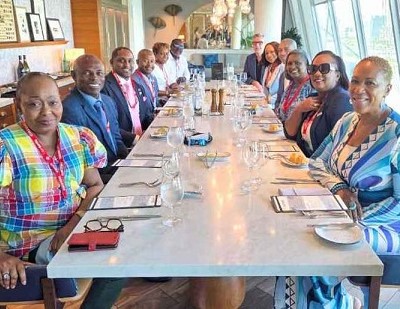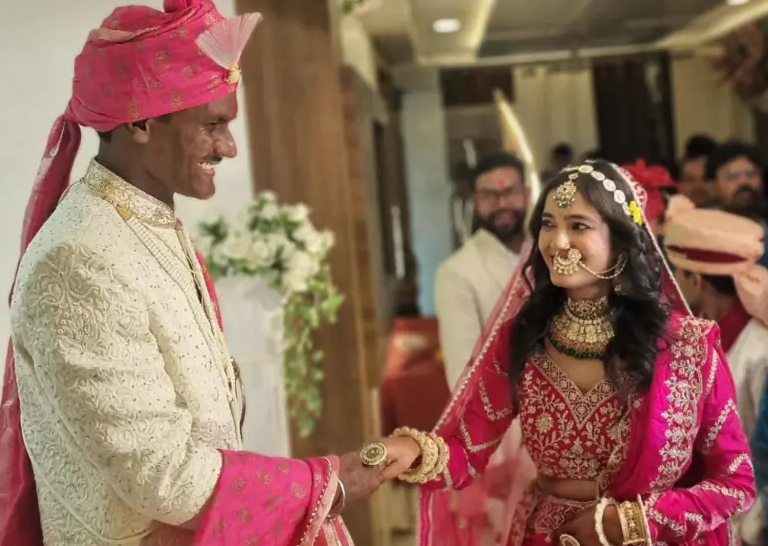While conversations around menopause are thankfully becoming more frequent, experts are asserting that women from marginalised communities are still being left without a voice.
With a lack of research and support for the unique experiences of marginalised women, a harsh reality is being exposed: menopause equality is far from being achieved. Despite menopause affecting 51% of the world’s population, the research in the area is broad, rarely exploring the different experiences of those in marginalised communities.
From a lack of representation of ethnic minority women in education resources; to advice and support services that pose language barriers: experts warn that many marginalised women don’t identify with the ‘typical’ menopausal narrative and are not accessing vital support, leading to an inequality in care for these communities. Championing the change needed for health equality is Cysters, a leading reproductive and mental health charity.
Having hosted its inaugural event on the topic, Marginalised and Menopausal, on 11 May, the charity highlighted the fact that women from marginalised communities often experience a disproportionate burden during menopause. The event hosted esteemed guests, such as Dame Lesley Regan, the UK's first Women's Health Ambassador for England.
Her presence ensured the conversation extended beyond awareness and delved into practical steps like health initiatives and future policies. Celebrated healthcare professionals Dr. Nighat Arif, Resident Doctor on This Morning, and Dr. Aziza Sesay, a GP and educator, also offered invaluable medical expertise, enriching the discussion. Giving insights into the challenges met due to lack of research, Dr. Nighat Arif shared: “The biggest issue that marginalised communities face is the fact that they're under-researched, meaning we don't have the clinical data to back up any health initiatives that we want to use for them.
“These groups are then rarely invited to the place of the table to make policies or give advice on policies, and assumptions are placed on them. When those communities are left out of those conversations when it comes to women's health, they don't feel represented and feel that they don't have any trust in mainstream healthcare.”
Dr Sesay Aziza expands: “We have so many nuances that exist within our communities. There's a lot of shame.
“There's a lot of stigma, a lot of taboo and embarrassment. These conversations are never happening, because it's always brushed under the carpet, or it's seen as insignificant and something that women should just endure.
“It's just not spoken about at all and people are suffering in silence. It’s because of these things that this event exists in the first place, as we need to inject awareness into communities.”
Meera Bhogal, 55, from Middlesex, lived this firsthand: having started to experience perimenopause symptoms in her 30s, Meera was concerned, but due to the lack of discussions around the topic, she didn’t acknowledge them until much later. Now she works to support those experiencing menopause, as well as facilitate conversations in communities where menopause isn’t being discussed.
Meera shares her story, explaining: “I started my menopause journey in my late 30s and the earliest actual memory of it was on my 40th birthday when I struggled to go to my party because of my hair loss and loss in confidence.
For the following 10 years, I was in perimenopause struggling with every symptom that was listed on the symptom checker. It was lonely and I didn’t know I was going through it until I was 45/46. Even when I knew, because of my own research, I was told time and again I was too young.
“No one talked about menopause in my community or even in my family. I was told to stop talking about what I was going through and that I should just get on with it.
“It becomes a lonely experience where you are made to feel that there is something wrong with you. Raising awareness around the impact of menopause within different populations is vital so that we get more data, more research, more targeted and informed treatments, and a change to how women’s health is viewed.”
Neelam Heera-Shergill, founder of Cysters and organiser of the event, expands on the reason behind the event, stating: “It's clear that many share our concern about the lack of awareness and resources surrounding menopause, especially for women in marginalised communities.
“By creating a space for open discussion and bringing together passionate individuals, we can begin to dismantle the stigma and ensure every woman has access to the information and support they need to navigate menopause with confidence. We're excited to continue this conversation through future events and translate it into tangible change.”
Set up in 2015 by Neelam Heera-Shergill, Cysters is a grassroots charity which focuses its efforts on supporting those with reproductive and mental health issues. More than just a support service, Cysters uses its platform and influence to support its users in a myriad of ways; offering a supportive network for individuals with health issues to connect and share their experiences, collaborating with other platforms and networks to ensure users receive the best advice and care, and educating users to become their own health care advocates.
They are also working with various universities and academics to ensure that research in this space remains intersectional of all the community. Neelam Heera founded Cysters after facing her own battles with getting a diagnosis and care for PCOS, Endometriosis and PMDD.
She saw first-hand the disparities in healthcare for people of colour and other marginalized groups, thus Cysters was born. Neelam felt that issues around reproductive health was often trivialised by healthcare professionals and sexualised by racialized communities due to outdated cultural beliefs, male dominated spaces and patriarchy.
The work Cysters do is always evolving to reflect the diverse population serviced; Most recently the organisation changed their name to show their commitment to the trans communities by removing the word “woman” from their name, with a logo that reflects the need to create tables dedicated for those in marginalised communities, reclaim the narrative and ultimately stand together to make a difference. Neelam’s work has been recognised by the Pride of Britain and Point of Light awards from the Prime Minister and was named as ones of Birmingham’s 30 under 30.
Dr Nighat Arif is a GP specialising in women's health, family planning and menopause care with over 15 years of experience in the NHS. Outside of running her own private practice, she is the resident Doctor on BBC Breakfast and ITV’s This Morning; is the Ambassador for Wellbeing of Women; and the recipient of the 2023 Prime Ministers 'Point of Light' Award for her work raising awareness of Women's Health issues in the UK.
Dr Nighat was awarded an Honorary Doctorate from City, University of London in recognition for her work with the UN backed Team Halo initiative and is the author of her debut book 'The Knowledge. Your guide to female health from Menstruation to the Menopause". It is an illustrated, inclusive book for all things women's health available now, whilst Dr. Aziza Sesay is an NHS General Practitioner, GP educator, Honorary Senior Clinical lecturer, public speaker and health content creator.
She has a strong passion for health education, awareness, advocacy and empowerment, and channels this through her platform 'Talks with Dr. Sesay' - where she shares short informative videos, infographics, live discussions and tips on a variety of topics. Dr. Sesay is the Vice President and Creative Director of Black Female Doctors UK organisation, Charity fundraising lead for Keep it Fax charity, one of the Board of Directors of Prevention First Initiative, Trustee of Cysters Group charity, Ambassador for the Eve Appeal and Wellbeing of Women charities; and was a UN Women UK delegate for CSW 67 (volunteer role).
She's been featured on BBC News, Metro News, Stylist magazine, Women's health UK and many more, and has collaborated with several different organisations including NHS England, DHSC, CoppaFeel!, Jo's Cervical Cancer Trust, Black Women Rising UK, PANDAS foundation and many more to help make this a reality.











